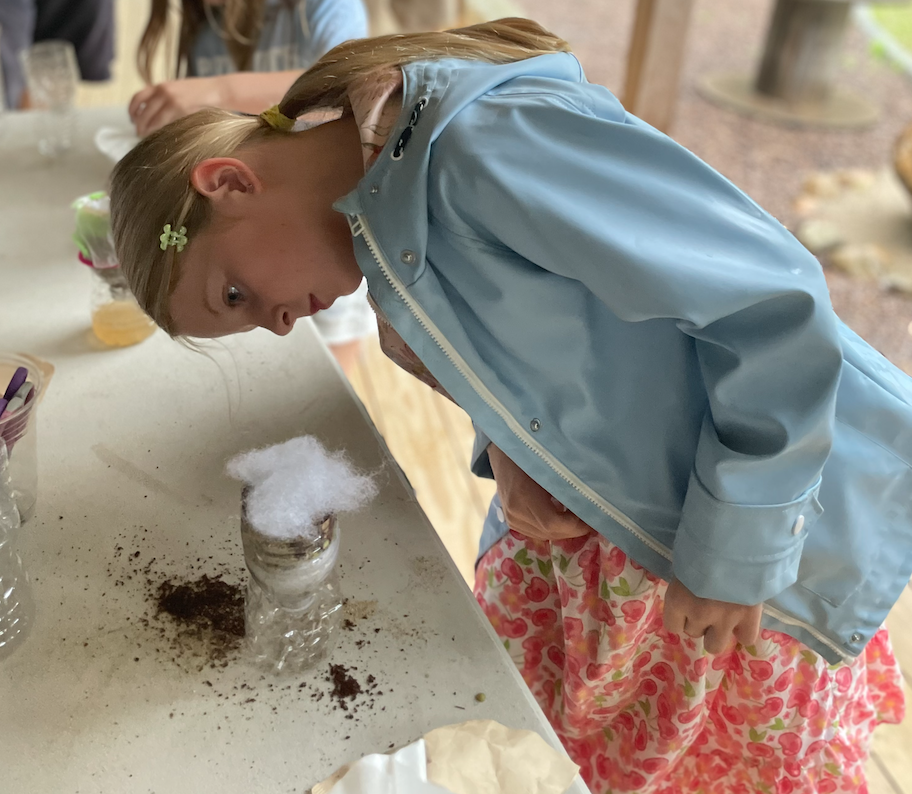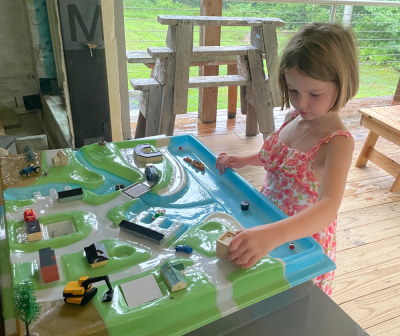Solutions sought for areas vulnerable to climate change
Using ingredients including uncooked peas, sand and ingenuity, children created filters to transform dirty water into a much cleaner version during a program July 13 at the Lloyd Center for the Environment.
Those efforts, on a much smaller scale, mirror the work the town is doing through a state grant program aimed at mitigating climate change in Dartmouth in the years ahead. The town hopes to identify situations that could be vulnerable to climate change and develop lasting solutions with support from a statewide effort.
The Municipal Vulnerability Preparedness Program is a state-level climate program that encourages communities to develop “resilience to climate change,’’ according to material provided by the state. The goal is to seek nature-based solutions to some of the most pressing challenges, many of them impacting the town’s coastal regions.
Dartmouth began working at this effort in 2020, Interim Town Administrator Chris Vitale said, when a plan was developed to look at the areas in town most vulnerable to climate change. This included listing some of the sites that could be affected.
Vulnerable locations previously cited include possible storm wall replacement at Round Hill Beach; creating a gravel filter strip, berm or similar flood protection at the Clarence Street pumping station; developing drainage systems, filter strips or rain gardens to ease ponding in the parking area of the Council on Aging on Rogers Street; and making improvements to a seawall area on a portion of Potomska Road adjacent to Little River.
The latest development in the project was the receipt of a $84,375 grant to take the next steps.
The work is part of a “multi-year, multi-phase effort’’ that will not happen immediately, Vitale said. But the grant represents “a sign that we are continuing to make efforts forward,’’ he said.
Through this grant, engineers are inspecting the town’s most vulnerable sites. They will identify the top priorities and design potential solutions.
The actual work will likely happen in the next phases of the project, Vitale said.
Education is another focus of the grant. The money awarded is also being used to bolster climate change education efforts through Round the Bend Farm and Lloyd Center.
Neither location is a stranger to environmentally friendly efforts.
The Lloyd Center is constructing a new education center that features a garden with plantings selected to filter the grey water used in the building. This would be the town’s first greywater treatment center. Grey water refers to all household water streams other than toilet water.
Round The Bend Farm’s commitment to preserving natural resources includes composting toilets, which save water that can be allocated to other farm uses. Their regular farm days also emphasize education about their environmentally friendly efforts.
The July 13 drop-in event at Lloyd Center, which was one of the educational programs funded, featured two components.
One was experiment to create filters to show how natural substances such as sand can improve water quality and a map.
The other featured a map showing how everyday situations _ such as construction sites where substances can be uncovered and oil trucks with potential leaks _ can lead to runoff that eventually pollutes waterways.
These projects aim to show that everyday actions matter and solutions can be found through determination and resilience, Lloyd Center educator and naturalist Shannon Ewell said.
Jovie Rheaume, 9, said she learned that she shouldn’t add too much “hurting stuff’’ to ensure that the resulting water is clear.
Ewell hopes the youngsters recognize the importance of water quality and “learn about the things that can destroy the watershed.’’
Their adult counterparts continue to keep their eyes on those very issues, Vitale said. “We want to start working toward solutions,’’ he said.













